Search Images
Browse Content (p. 1378)
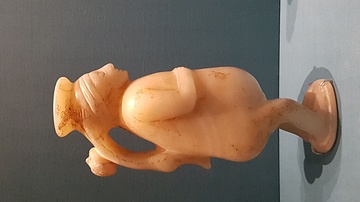
Image
Egyptian Vase In the Form Of A Pregnant Woman
Egyptian calcite vessel in the form of a pregnant woman. Its handle represents a child holding the woman's hair. 18th Dynasty, about 1479-1352 BCE. Found in Tomb 949, Abydos, Egypt. The British Museum, (photo taken at The Powerhouse Museum...
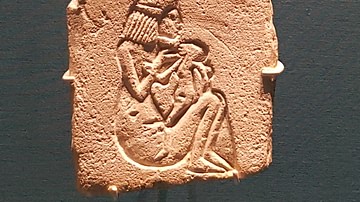
Image
Egyptian Relief Of A Woman & Child
Limestone relief carving of a woman and a child, found in El-Amarna, Egypt, late 18th Dynasty, c. 1350-1330 BCE. The British Museum, London. Photo taken at The Powerhouse Museum, Sydney, Australia. This relief might have a sculptor's...

Image
Egyptian Child's Leather Sandals
Child's sandals from Thebes, Egypt. New Kingdom of Egypt, c. 1550-1069 BCE. The British Museum, London. Photo taken at The Powerhouse Museum, Sydney. Sandals are often found in tombs. They are usually made of woven reeds or wood, but...
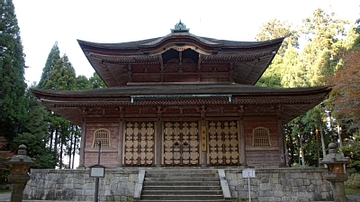
Image
Ordination Hall, Enryakuji
The Ordination Hall (Kaidan-in) of the Buddhist Enryakuji temple complex, Mt. Hiei, Japan. The site was founded by the monk Saicho in the early 9th century CE but all the buildings are later reconstructions.
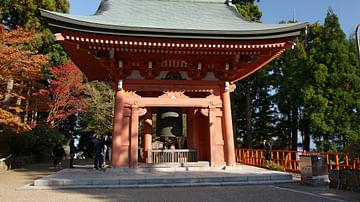
Image
Bell Tower, Enryakuji
The Bell Tower of the Buddhist Enryakuji temple complex, Mt. Hiei, Japan. The site was founded by the monk Saicho in the early 9th century CE but all the buildings are later reconstructions.
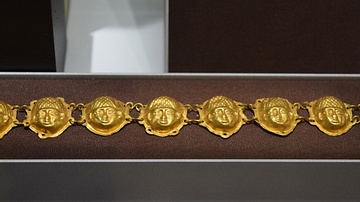
Image
Etruscan Gold Jewelry
A strand of a gold Etruscan necklace, found in Italy, dating back to between 800 and 500 BCE.
Field Museum in Chicago, Illinois, USA.
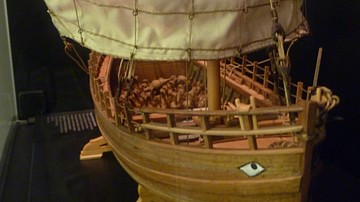
Image
Greek Trading Ship
Greek trading ship model, 4th century BCE
Barcelona Archaeological Museum
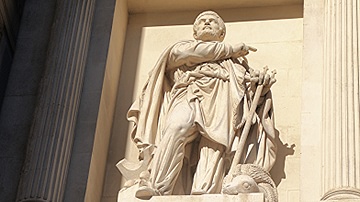
Image
Pytheas
Statue of Greek traveller, Pytheas.
Marseille, Palais de la Bourse
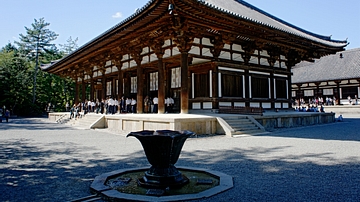
Image
Main Hall, Toshodai-ji
The Toshodai-ji is a Buddhist temple of the Risshu sect in Nara, Japan. Founded in 759 CE by the Chinese monk Ganjin, it boasts the largest Nara period building that has survived. This is the Main Hall or Kondo which has a distinctive facade...
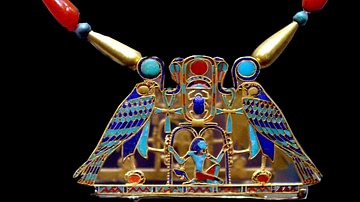
Image
Pectoral of Senusret II
Pectoral of Senusret II (c. 1897-1878 BCE). Middle Kingdom, Egypt.
Metropolitan Museum of Art, New York.